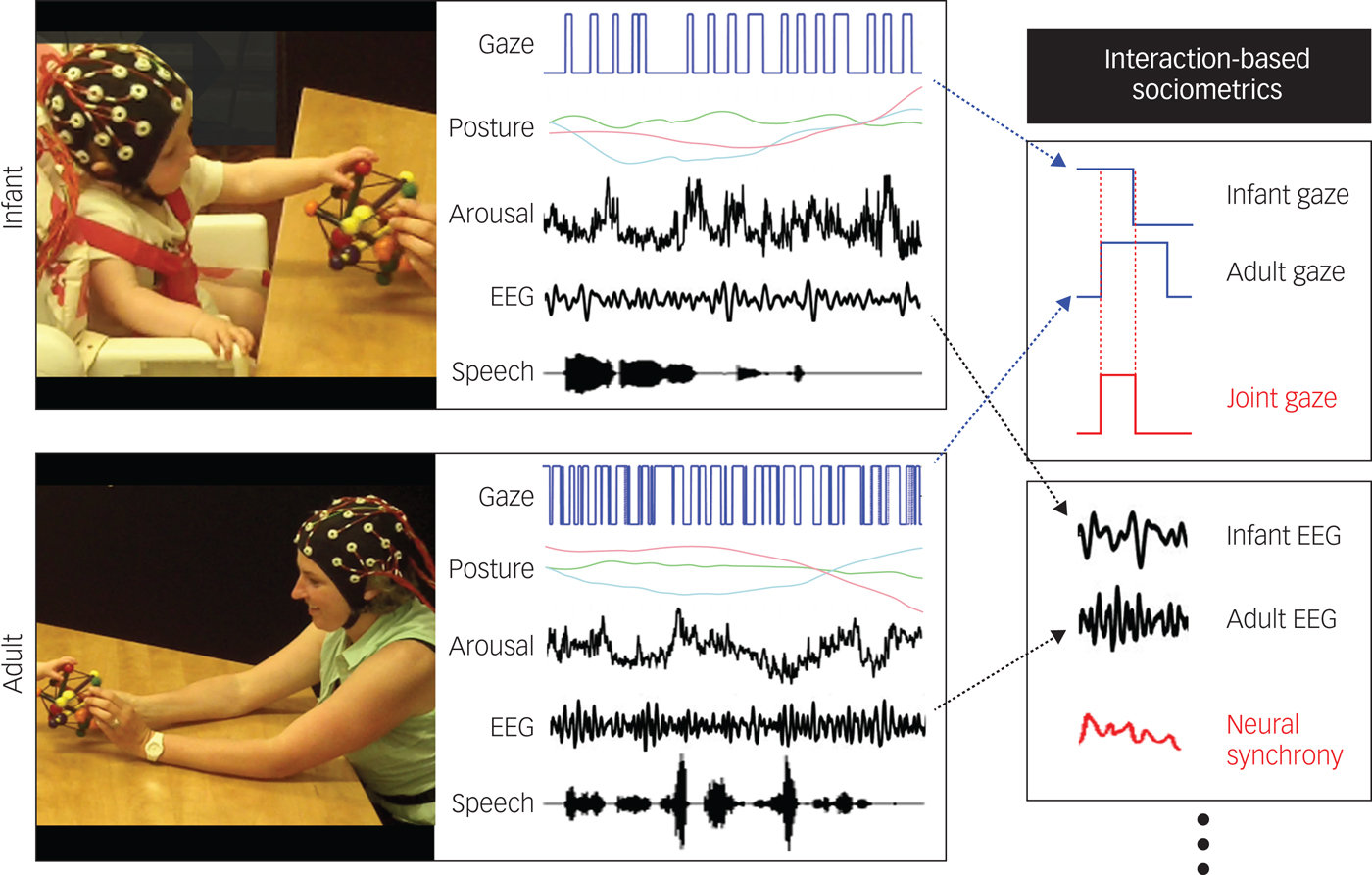Research Focus
Infant development depends on warm, responsive social interactions that richly stimulate the senses, acting through multiple pathways to orchestrate healthy maturation of the neonatal brain, mind and body. Conversely, adverse early experiences seed vulnerabilities for poor cognition and emotional instability. Yet although we routinely measure many aspects of infant physical health (hearing, weight), few clinical tools currently exist to measure early psychosocial health and brain development. The few screening tools that are available lack precision and scalability, and suffer from cultural bias.
Early Mental Potential & Wellbeing Research (EMPOWER) Centre is pioneering a novel culture-fair approach, Dyadic Neural Sociometrics, as a scalable precision measurement framework for early brain and psychosocial health. This involves real-time multi-sensor imaging of adult-infant social interactive behaviour and neurophysiology during naturalistic play, paired with advanced AI-powered computational modelling techniques to identify transdiagnostic risk profiles. Early risk measurement, paired with precision therapeutics, could fundamentally alter a child’s development trajectory toward lifelong mental wellbeing and productivity.















/enri-thumbnails/careeropportunities1f0caf1c-a12d-479c-be7c-3c04e085c617.tmb-mega-menu.jpg?Culture=en&sfvrsn=d7261e3b_1)

/cradle-thumbnails/research-capabilities1516d0ba63aa44f0b4ee77a8c05263b2.tmb-mega-menu.jpg?Culture=en&sfvrsn=1bc94f8_1)
